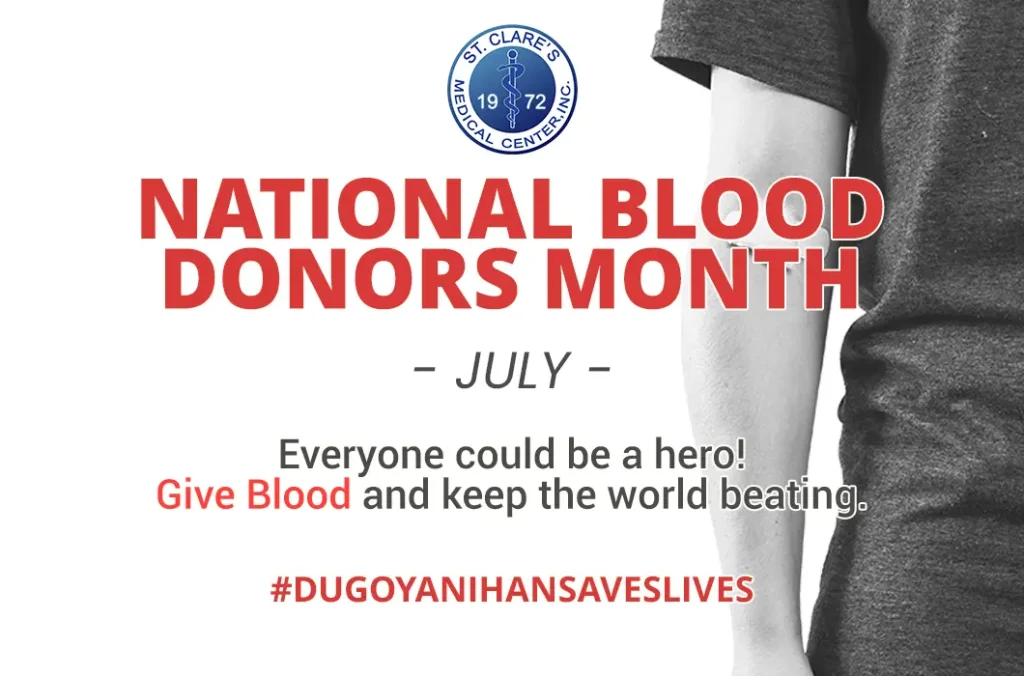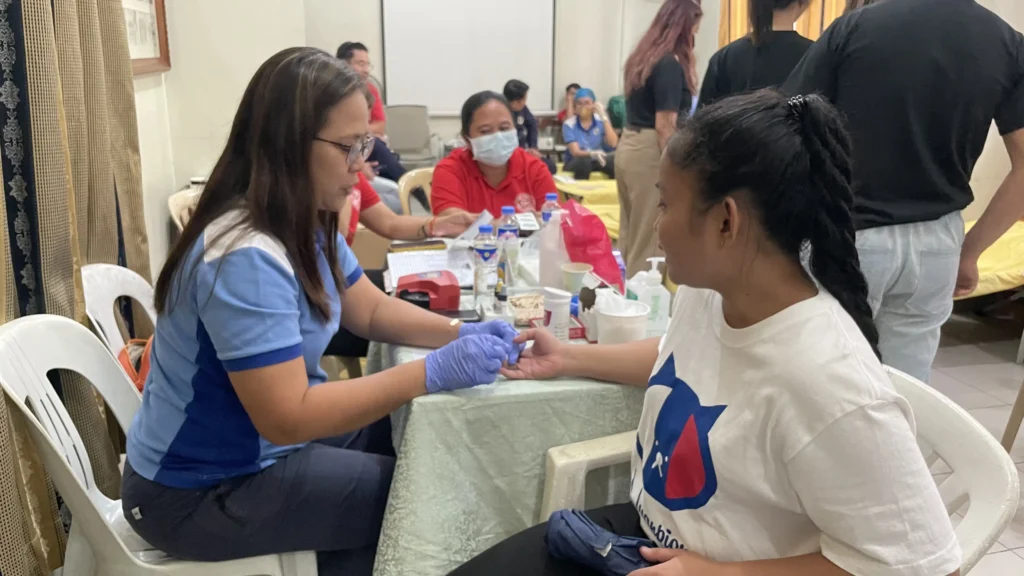
National Blood Donors Month, observed every July in the Philippines, serves as a pivotal period dedicated to raising awareness about the indispensable need for blood donations. This month not only highlights the importance of blood donation but also honors the selfless individuals whose contributions play a critical role in saving lives. The history of National Blood Donors Month traces back to initiatives aimed at addressing the perennial shortage of blood supplies in healthcare facilities across the country.
Blood donation is an act of generosity and solidarity, essential for the functioning of any healthcare system. In the Philippines, the demand for blood is constant and considerable. According to the Philippine Red Cross, the country requires approximately one million units of blood annually to meet the needs of patients undergoing surgeries, treatments for chronic illnesses, and those involved in accidents. Despite this high demand, the supply often falls short, making the role of blood donors even more crucial.
The significance of National Blood Donors Month extends beyond mere advocacy; it is a call to action for communities to support and engage in blood donation drives. Statistics reveal that while millions of Filipinos are eligible to donate blood, only a small percentage actually do. This gap underscores the need for continuous education and encouragement to build a robust network of regular donors. Blood donors are the lifeline of medical emergencies, providing the essential resource needed for transfusions that can mean the difference between life and death.

Throughout July, various organizations, including hospitals, non-profits, and government agencies, collaborate to host blood donation events, awareness campaigns, and recognition ceremonies. These efforts not only aim to increase the volume of donations but also to foster a culture of giving and community support. By celebrating National Blood Donors Month, the Philippines acknowledges the profound impact of blood donors and strives to inspire more individuals to contribute to this life-saving cause.


Blood donations are a cornerstone of healthcare, providing vital support to patients and offering significant benefits to donors. This lifesaving practice supports medical procedures, aids cancer patients, and enhances donor health. National Blood Donors Month highlights the profound impact of blood donations on both recipients and donors.
Blood donations are crucial for patients undergoing surgeries, cancer treatments, and emergency care, often making the difference between life and death.
Surgeries like organ transplants and trauma responses require large amounts of blood, ensuring successful outcomes and patient recovery.
Cancer patients frequently need blood transfusions to manage anemia and other complications as part of their treatment.
Regular blood donation can lower iron levels in the body, potentially reducing the risk of heart disease, and includes a mini-physical exam that can detect potential health issues early.
Donors often experience a sense of fulfillment, knowing their contributions make a tangible difference in others’ lives, reinforcing the importance of regular donations.

On May 14, 2024, St. Clare’s Medical Center, Inc. marked its 52nd anniversary with a significant and heartfelt event dedicated to blood donation. Themed ‘Give Blood, Give Love,’ the celebration underscored the hospital’s enduring commitment to community service and healthcare excellence. The event featured a range of activities designed to promote the importance of blood donations, encourage community participation, and honor the selfless acts of blood donors.
Central to the celebration was the bloodletting activity, which saw a remarkable turnout of volunteers. Staff members, local residents, and even first-time donors came together, embodying the event’s theme of ‘Give Blood, Give Love.’ The participation of these donors was a testament to the community’s spirit and willingness to support a vital cause. The hospital’s well-coordinated efforts ensured a smooth and efficient process, with medical personnel on hand to assist and ensure the safety and comfort of all donors.
St. Clare’s Medical Center’s 52nd anniversary celebration was not only a success in terms of participation but also in reinforcing the hospital’s mission and values. The event highlighted the importance of community involvement in healthcare initiatives and acknowledged the dedication of the staff, volunteers, and donors who made it possible. Their collective efforts exemplify the spirit of giving and the profound impact of blood donations on saving lives.
While events like the one held at St. Clare’s Medical Center are crucial, the need for blood donations is ongoing. Continuous blood donation is essential to ensure a steady supply of blood for emergencies, surgeries, and patients with chronic illnesses. Blood has a limited shelf life, so regular donations are necessary to maintain an adequate inventory and support the healthcare system.
Becoming a regular blood donor is a simple yet impactful way to contribute to public health. Individuals interested in donating blood can start by locating local blood banks or donation centers. Most centers have an easy registration process; potential donors need to meet specific health criteria and complete a brief medical history questionnaire. Once registered, donors can schedule appointments at their convenience, ensuring that their contributions fit seamlessly into their lifestyles.
The process of donating blood is straightforward. Upon arrival at the donation center, donors undergo a quick health screening, which includes checking vital signs like blood pressure and hemoglobin levels. The actual donation typically takes about 10 to 15 minutes, during which a pint of blood is drawn. Afterward, donors are advised to rest briefly and consume light refreshments to help replenish their energy. The entire visit usually lasts about an hour.
Preparing for a blood donation involves a few simple steps. Donors should stay hydrated by drinking plenty of water the day before and the day of their appointment. It’s also crucial to eat a healthy meal rich in iron to prevent dizziness and ensure a smooth donation process. Avoiding strenuous activities before and after donating can help minimize any discomfort.
Spreading awareness about the importance of blood donation is equally vital. Donors can encourage family, friends, and colleagues to participate in blood donation drives by sharing their experiences and highlighting the lifesaving impact of their contributions. Social media platforms offer an excellent avenue for raising awareness and motivating others to join this noble cause.

Our website uses cookies to provide you with the best browsing experience.
By continuing to browse our website, you agree to our Privacy Policy and accept our Cookie Policy.